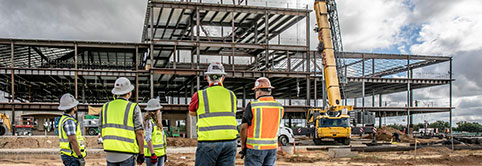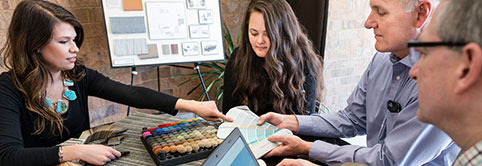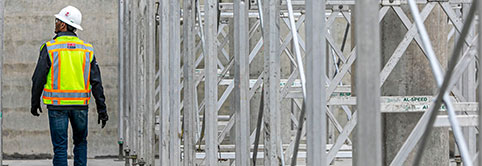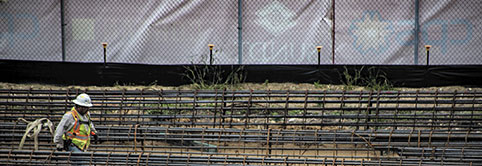Respect for People
Introduction to Respect for People
Lean Construction offers an alternative to standard construction project delivery methods, reducing waste while increasing the overall value of a project while lessening costs and completion times.
But Lean itself is a mindset more than something that you do, a mindset that requires a number of changes in culture and process to achieve those goals.
The Lean Construction Institute has identified six tenets that all Lean projects must abide by if they hope to be successful. These tenets guide the ways in which your culture must adapt in to call your organization truly Lean.
The six tenets of the Lean Construction Institute are:
- Respect for People
- Optimize the Whole
- Removal of Waste
- Focus on Process and Flow
- Generation of Value
- Continuous Improvement
These six tenets are all important, but not created equal. Respect for People is regarded as the most crucial of the six tenets.
The guiding principle of Respect for People is the notion that there is no limit to how far human wisdom can be developed. Thus, Respect for People is the attitude that regards people’s ability to think.
With most construction projects that utilize traditional delivery methods, people are viewed more as assets. Workers are frequently pigeonholed into specific roles or jobs.
When people don’t feel respected, they will be less motivated on the jobsite and less likely to reciprocate a respect for the work being done. Moreover, when workers are not respected, their voices aren’t heard and their talents are wasted, leading to a worse outcome for the project.
In the world of Lean, we have learned that respecting people first leads to a happier and more productive workforce and a better workplace culture – which in turn leads to a more productive workflow.
What is Respect for People?
Respect for People is a tenet of the Lean Construction Institute that asserts that all Lean projects must be guided by a mutual respect among all people involved in and affected by a construction project. Team members need to respect the opinions, skill sets, and feelings of one another, and project managers need to respect the stakeholders of a project.
What Does Respect for People Entail?
One of the most common mistakes that project teams make when implementing Lean is focusing purely on processes rather than focusing on the people. Teams may get tunnel vision by implementing process improvements without changing the culture of the team to ensure that all voices are heard and respected.
[SIDE NOTE: You may hear it said when considering a Lean process such as Kaizen or Plus/Delta that critiques should be process-focused rather than people-focused, but that is said with Respect for People in mind – critiquing a team member is not respectful and is wasteful when the root problem is likely the process being followed.]
Respect for People entails the following:
- Recognizing and appreciating the value each member of the team brings
- Fostering an environment where people feel comfortable sharing concerns, knowing that others will listen and consider their perspectives
- Adapting a “problems first” attitude
- A willingness from all members to accept that they might not know everything, and an openness to new ideas
Respect for People and Conflict
To be respectful doesn’t mean to avoid conflict and hide your true feelings and opinions. To the contrary – it actually means being willing to embrace conflict in a productive way. Plus/Delta and Kaizen are each examples of ways in which one can share feedback and discuss it constructively.
Avoiding conflict and difficult discussions is actually antithetical to Lean and Respect for People – a healthy Lean project is one where communication flows freely and where people feel comfortable to voice their concerns.
Benefits of Respect for People
1. Trust
When people feel respected, they will be more willing to trust one another. This leads to increased transparency in the workplace and greater levels of collaboration, which can improve processes and foster innovation.
In a project where people do not trust one another, conflicts arise both within teams and between teams, which can distract from the project as a whole.
2. Knowledge
When people are open to new perspectives and ideas, they acquire more knowledge. This makes all workers more effective and well-rounded, capable of performing new tasks that can add value to the project.
When all voices are heard, knowledge is shared that might otherwise remain with one or two people. This knowledge leads to better decision-making over the course of the project.
3. Confidence
When team members have more knowledge and are more transparent with one another, they will work with more confidence. This enables team members to work more efficiently.
Since team members have more knowledge, they will be more likely to complete a task correctly the first time, which reduces rework (one of the main types of waste!)
4. Motivation
Team members who feel respected will be happier at the workplace and will be more motivated to work hard on behalf of one another. A rising tide lifts all boats, and increased morale lifts a project to new heights.
5. Value
Ultimately, all these factors point to added value for the project and its stakeholders. Improved communication and transparency, heightened levels of knowledge, and more motivated workers will all cause the project to be completed more efficiently.
Meanwhile, a greater number of voices sharing knowledge with one another will foster better decisions and the potential for innovative solutions.
How to Respect People
1. Lead
Team culture starts from the top down, and a Respect for People needs to be conducted from the leadership level.
Strong leadership is paramount in a Lean setting, and all team members need to be able to display leadership skills. Because of this, it’s important to select team members who you know will respect people and who will enforce this mindset.
Create a culture where people are heard and respected and others will follow. Maintain this culture and immediately address any issues that arise.
2. Listen
This applies to leaders and team members alike. Lean requires that people be willing to set aside all assumptions and be open to new ideas and possibilities. Team members should listen to one another and leaders need to be willing to step back and allow others to take charge when appropriate.
When another perspective is provided, seek first to understand that perspective. All ideas should be considered – resist the urge to shut down something that doesn’t immediately resonate with you. Perhaps an idea that doesn’t work now can be revisited and applied later.
3. Learn
In the spirit of Continuous Improvement, we are always learning new things. Nobody has all the knowledge, and it’s important that people not only be willing to learn but that they are excited to learn.
Strong Lean leaders are humble and recognize that there is always a better idea – an innovation that just hasn’t been considered yet. Team members should be curious by nature, asking questions more often than they are giving directions.
Respect for People & Mental Health
Mental health is extremely important in all industries, but it is especially important to consider in the built environment. As of 2017, the built environment suffers 53.2 suicides per 100,000 workers, one of the highest rates of any industry in the country.
A number of factors contribute to the poor mental health of the industry, including grueling working conditions, a high risk for injury, a lack of transparent communication around mental health, and a “tough guy” mentality that often dismisses mental health issues.
At LCI, we have increasingly embraced the importance of mental health as a Respect for People concept. There are a number of great resources you can access whether you’re suffering from mental illness or are someone who wants to help make our industry stronger.
Mental Health Resources
- Construction Suicide Prevention Week (September 4-8, 2023)
- The Construction Industry Alliance for Suicide Prevention (CIASP)
- Construction Working Minds: Mental Health Promotion, Suicide Prevention, and Addiction Recovery at Work
- The Center for Construction Research and Training Suicide Prevention Resources
- Occupational Safety and Health Administration (OSHA): Preventing Suicides
- Associated General Contractors of America (AGC): Mental Health & Suicide Prevention
Respect for People Event
Join us at our annual Respect for People event, where we frequently discuss topics related to mental health in the industry and how we can all make a difference.
Because Respect for People is the key tenet of the Lean Construction Institute around which all other tenets revolve, we host an annual event based on the concept.
The Respect for People event takes place each summer, with presentations from thought leaders around the industry on how we can improve workplace culture in the built environment and make a positive impact on one another’s lives.
Learn more about this great event and keep tabs for information on the next event!
More Lean Topics
From 5s to IPD, explore popular Lean design and construction topics below.





